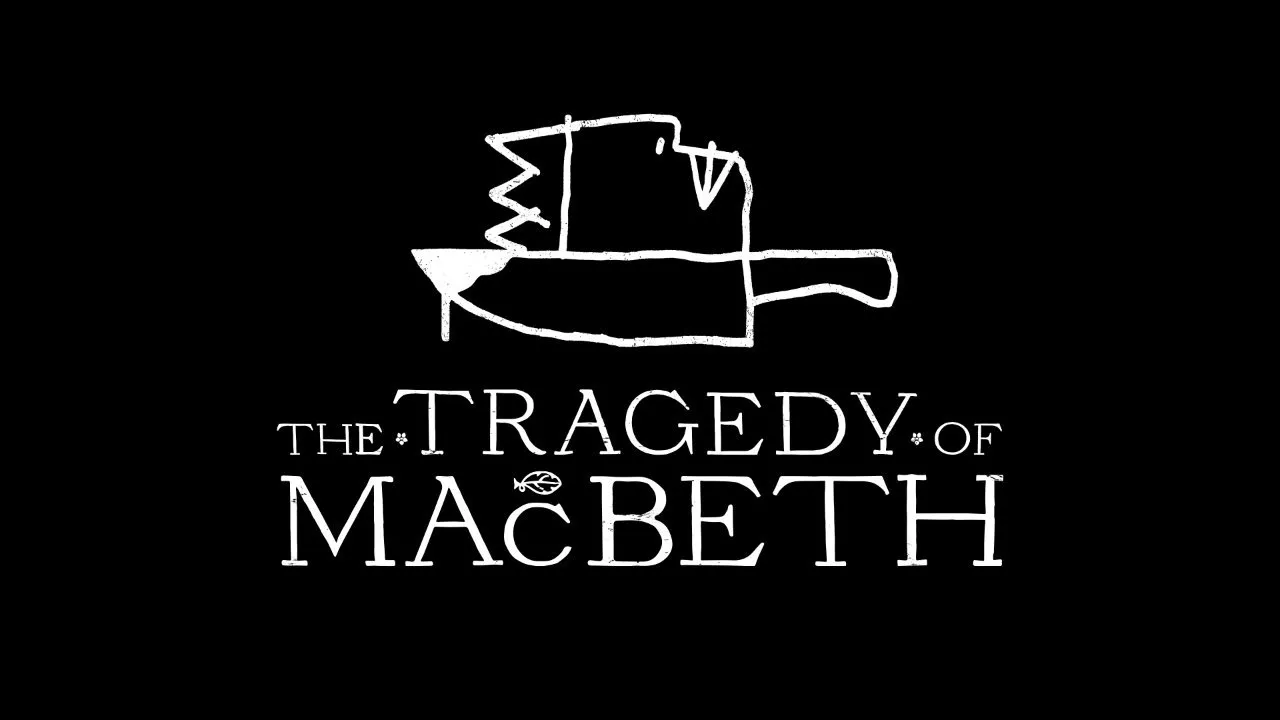
For Foreigner to the English language, Macbeth can be a play really hard to understand. It is hard for English native speakers. Nonetheless, it is one of the most famous tragedies Shakespeare wrote which has abundant adaptations, different formats, and many celebrities who have taken important roles within this play. So, I made an analysis based on the Aristotelian approach to stories. He said that each good story should have a plot, characters, theme, diction, music, and spectacle. For each of these aspects he defined how things should be. In this post, I share my analysis of Macbeth seeking to understand this important, classical part of the artistic world.
Para los extranjeros al idioma inglés, Macbeth puede ser una obra realmente difícil de entender. Es difícil para los hablantes nativos de inglés. No obstante, es una de las tragedias más famosas que escribió Shakespeare, que cuenta con abundantes adaptaciones, diferentes formatos y muchas celebridades que han tomado papeles importantes dentro de esta obra. Entonces, hice un análisis basado en el enfoque aristotélico de las historias. Dijo que toda buena historia debe tener una trama, personajes, tema, dicción, música y espectáculo. Para cada uno de estos aspectos definió cómo debían ser las cosas. En este post, comparto mi análisis de Macbeth buscando entender esta importante parte clásica del mundo artístico.
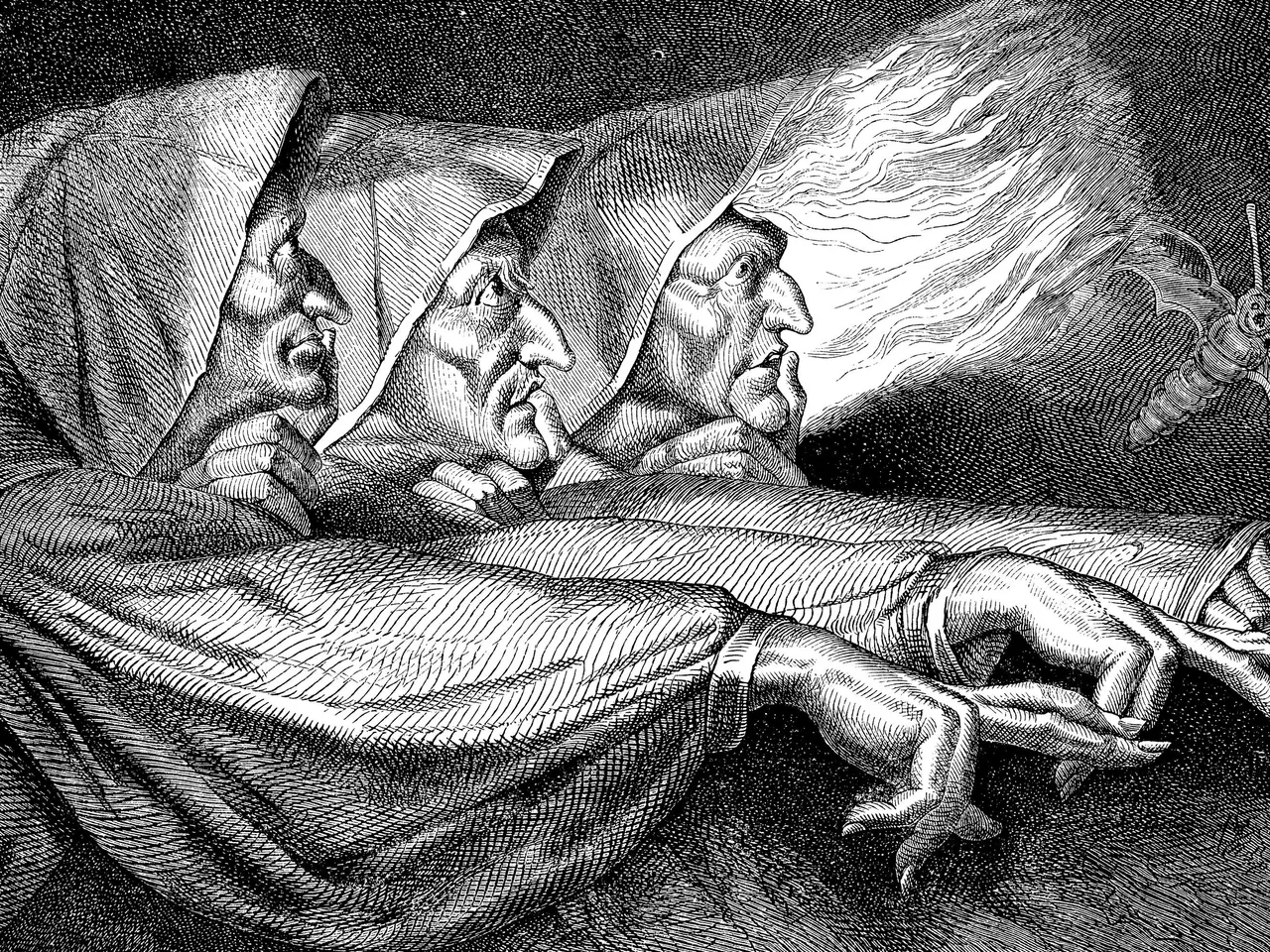
In this play, the plot shows no historical events presented to give context, or the introductions of climax moment first to then use flashback to fill all the gaps. The plot in Macbeth is completely straight forward with an interesting element: a prophesy. This gives a foreshadowing sense to the play. We are not introduced completely to what’s to come, but we are given a glimpse of the future to anticipate and infer it through the prophesy of the three witches. The complication in this plot goes from the point when Macbeth fights along side Banquo till its climax when He is in Dunsinane experiencing the prophesy being fulfilled before his eyes. I chose this as the end of the complication because it is a change in the ‘hero’s luck,’ although Macbeth is far from a hero, but a protagonist. Then, denouement is composed from the fulfilment of the prophesy until the end of the play with Malcolm becomes king.
En esta obra, la trama no muestra eventos históricos presentados para dar contexto, o las introducciones del momento clímax primero para luego usar flashback para llenar todos los vacíos. La trama de Macbeth es completamente sencilla con un elemento interesante: una profecía. Esto le da un sentido de presagio a la obra. No se nos presenta por completo lo que está por venir, pero se nos da un vistazo del futuro para anticiparlo e inferirlo a través de la profecía de las tres brujas. La complicación en esta trama va desde el momento en que Macbeth lucha junto a Banquo hasta su clímax cuando está en Dunsinane experimentando el cumplimiento de la profecía ante sus ojos. Elegí esto como el final de la complicación porque es un cambio en la 'suerte del héroe', aunque Macbeth está lejos de ser un héroe, pero un protagonista. Luego, el desenlace se compone desde el cumplimiento de la profecía hasta el final de la obra en la que Malcolm se convierte en rey.
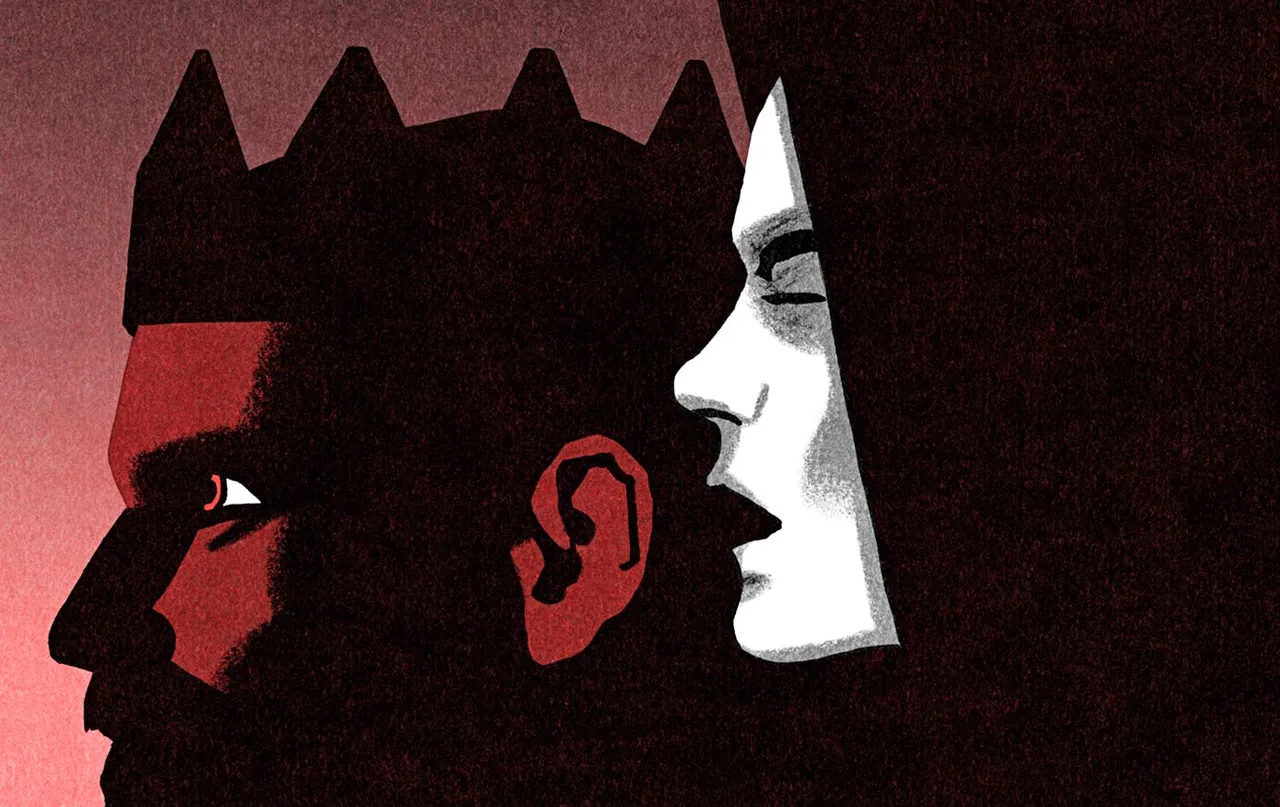
Macbeth is the protagonist of this play. It is the most elaborated character. The prophesy marks its path through the story, and all events confluence in him somehow. As his antagonist, I believe is the man who was not born of a woman which is Macduff. It feels upside down because Macduff ends the life of the tyrant, but the tyrant’s life is the whole story of the play. So, the villain is the protagonist, and the hero his antagonist. We could think of Malcolm as a second antagonist being the one who gathered an army, claimed his throne, and became king after Macbeth. Aside from them, there are other extraordinary characters like the King Duncan, the nobles, the three witches, and Hecate, the queen of the witches.
Macbeth es el protagonista de esta obra. Es el personaje más elaborado. La profecía marca su camino a través de la historia, y todos los acontecimientos confluyen en él de alguna manera. Como su antagonista, creo que es el hombre que no nació de una mujer que es Macduff. Se siente al revés porque Macduff acaba con la vida del tirano, pero la vida del tirano es toda la historia de la obra. Así, el villano es el protagonista y el héroe su antagonista. Podríamos pensar en Malcolm como un segundo antagonista que reunió un ejército, reclamó su trono y se convirtió en rey después de Macbeth. Aparte de ellos, hay otros personajes extraordinarios como el rey Duncan, los nobles, las tres brujas y Hécate, la reina de las brujas.
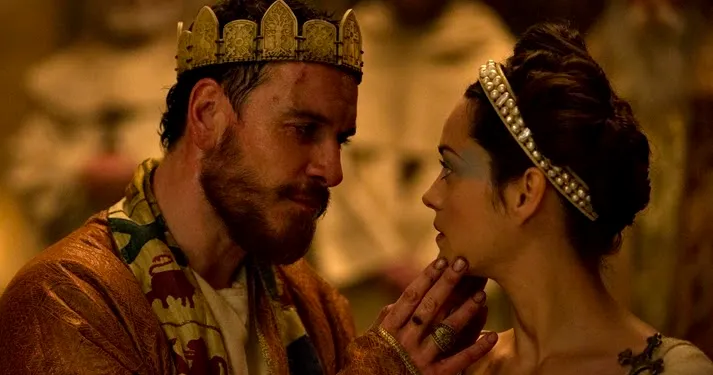
I believe Macbeth’s fatal flaw was his ego nurtured by his ambition. I can see how others might say ambition as the main flaw, but I think it was his ego that made him belief in the prophesies which was nurtured by a borrowed ambition from his wife. Due to his ego, he grows confident to the point of not fearing death, and such feeling leads him to his death in the fulfillment of the words of the witches. An example of this is when Macbeth meets the witches a second time and expresses “Then live, Macduff: what need I fear of thee?” Clearly, he feels untouchable as protected by a divine omen even though he acts upon the words to ensure his victory. Another example is seen when he awaits at Dunsinane and says “Bring me no more reports; let them fly all: Till Birnam wood remove to Dunsinane, I cannot taint with fear. What’s the boy Malcolm? Was he not born of woman?” It is obvious how he overestimates himself due to the prophesies, but it is not a permanent characteristic, but one that grows as the story develops.
Creo que el defecto fatal de Macbeth fue su ego alimentado por su ambición. Puedo ver cómo otros podrían decir que la ambición es el principal defecto, pero creo que fue su ego lo que le hizo creer en las profecías, que se nutrió de una ambición prestada por su esposa. Debido a su ego, crece en confianza hasta el punto de no temer a la muerte, y tal sentimiento lo lleva a su muerte en el cumplimiento de las palabras de las brujas. Un ejemplo de esto es cuando Macbeth se encuentra con las brujas por segunda vez y les expresa “Entonces vive, Macduff: ¿qué debo temer de ti?” Claramente, se siente intocable como protegido por un presagio divino a pesar de que actúa sobre las palabras para asegurar su victoria. Otro ejemplo se ve cuando espera en Dunsinane y dice: “No me traigan más informes; que vuelen todos: hasta que el bosque de Birnam se traslade a Dunsinane, no puedo mancharme de miedo. ¿Qué es el niño Malcolm? ¿No nació de mujer? Es obvio cómo se sobreestima a sí mismo debido a las profecías, pero no es una característica permanente, sino que crece a medida que se desarrolla la historia.
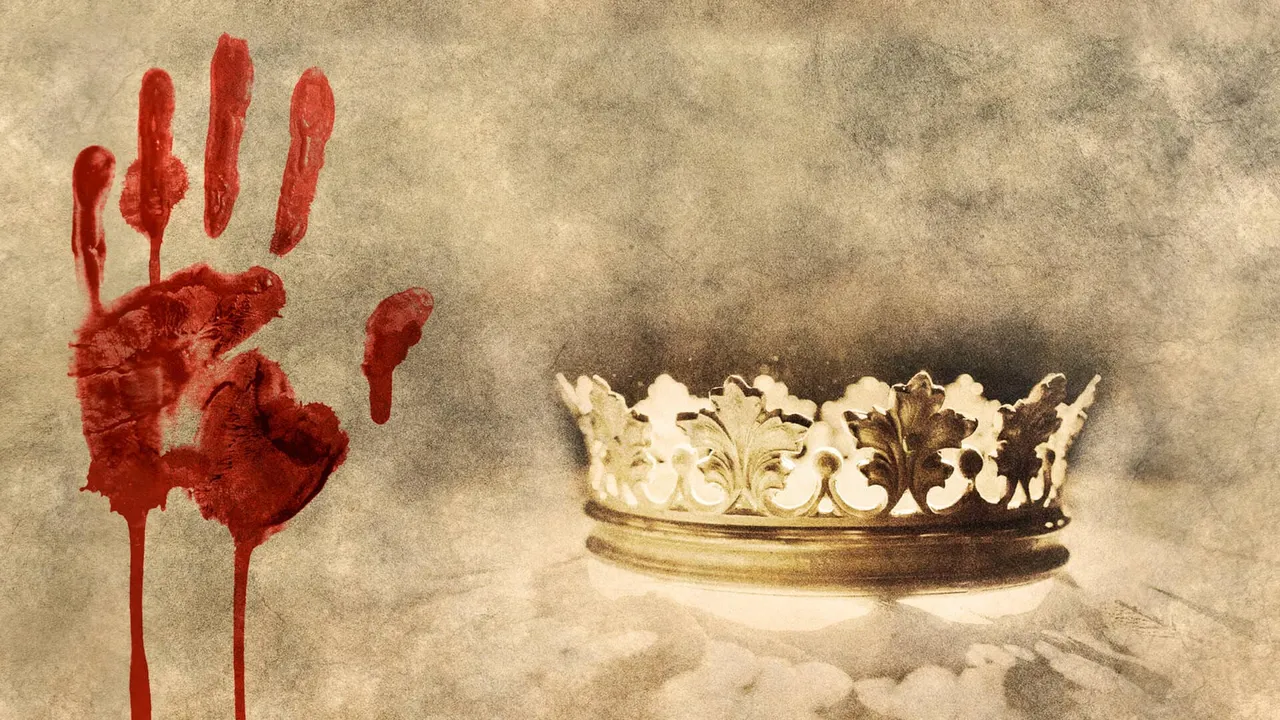
One of the major themes of the play is ambition, and how it can drive good men to the worst paths. In the beginning, Lady Macbeth describes his husband as too good hearted to perform acts that would make him king. The ambition for the crown changes him and his wife as they act upon it, and perform horrible actions against others to secure their goals. All those events impose a heavy weight on them, but they carry on in their roles. Another theme is justice and revenge which is fulfilled by Macduff when he kills the tyrant. All the killing that happens in the play leads to feelings of revenge and justice which are finally deposited in Macduff who makes the prophesy come true. Another great theme is the discussion of fate. The whole story is based on a prophesy that gives us all a sense of inference through the acts. It opens the door to the discussion of fate and the origin of prophesy. How valid were the prophesies in Macbeth? Were those used against him? Didn’t those feed his ego and made him overconfident? There are many questions we can ask regarding how “fate” led this story. Lastly, I believe that virtue is enforced in this story, not by all the good things that can happen when we strife for this attribute, but on how we can get lost if we lose our virtue. It is the dark side that is discussed in this play which encourages us to never abandon the good path.
Uno de los temas principales de la obra es la ambición y cómo puede llevar a los buenos hombres a los peores caminos. Al principio, Lady Macbeth describe a su esposo como demasiado bueno para realizar actos que lo convertirían en rey. La ambición por la corona lo cambia a él y a su esposa cuando actúan en consecuencia y realizan acciones horribles contra otros para asegurar sus objetivos. Todos esos acontecimientos les imponen un gran peso, pero continúan en sus funciones. Otro tema es la justicia y la venganza que Macduff cumple cuando mata al tirano. Todas las matanzas que suceden en la obra conducen a sentimientos de venganza y justicia que finalmente se depositan en Macduff, quien hace realidad la profecía. Otro gran tema es la discusión del destino. Toda la historia se basa en una profecía que nos da a todos un sentido de inferencia a través de los hechos. Abre la puerta a la discusión sobre el destino y el origen de la profecía. ¿Cuán válidas eran las profecías de Macbeth? ¿Fueron usados en su contra? ¿No alimentaron eso su ego y lo hicieron demasiado confiado? Son muchas las preguntas que nos podemos hacer respecto a cómo “el destino” lideró esta historia. Por último, creo que la virtud se impone en esta historia, no por todas las cosas buenas que pueden suceder cuando luchamos por este atributo, sino por cómo podemos perdernos si perdemos nuestra virtud. Es el lado oscuro del que se habla en esta obra que nos anima a no abandonar nunca el buen camino.
With honestly, diction is the hardest part for me to understand this play. There are old expressions and grammar elements I couldn’t recognize at first. That complicated my understanding of the play being also a foreign reader. I learned that this play has examples of blank verse, and Macbeth’s monologue once he finds out of his wife’s death is one of them. He says “To-morrow, and to-morrow, and to-morrow, Creeps in this petty pace from day to day To the last syllable of recorded time, And all our yesterdays have lighted fools The way to dusty death. Out, out, brief candle! Life’s but a walking shadow, a poor player That struts and frets his hour upon the stage And then is heard no more: it is a tale Told by an idiot, full of sound and fury, Signifying nothing.” I tried to read it out loud stressing the parts and making the pauses. Those pauses are intended to capture the audience’s attention. Another example of those form called Iambic pentameter is “The Prince of Cumberland! That is a step, On which I must fall down, or else o’erleap, For in my way it lies. Stars, hide your fires; Let not light see my black and deep desires.” I searched for videos that will show how actors would pronounce this. Those strong and weak syllables create certain rhythm that can capture attention as well.
Sinceramente, la dicción es la parte más difícil para mí de entender esta obra. Hay expresiones antiguas y elementos gramaticales que no pude reconocer al principio. Eso complicó mi comprensión de la obra siendo también un lector extranjero. Aprendí que esta obra tiene ejemplos de versos en blanco, y el monólogo de Macbeth una vez que se entera de la muerte de su esposa es uno de ellos. Él dice: “Mañana, y mañana, y mañana, Se arrastra en este paso mezquino de día en día Hasta la última sílaba del tiempo registrado, Y todos nuestros ayeres han iluminado a los tontos El camino a la muerte polvorienta. ¡Fuera, fuera, breve vela! La vida no es más que una sombra que camina, un pobre actor que se pavonea y se preocupa por su hora en el escenario y luego ya no se escucha más: es un cuento contado por un idiota, lleno de ruido y furia, que no significa nada. Traté de leerlo en voz alta enfatizando las partes y haciendo las pausas. Esas pausas están destinadas a captar la atención de la audiencia. Otro ejemplo de esa forma llamada pentámetro yámbico es “¡El príncipe de Cumberland! Ése es un peldaño en el que debo caer, o de lo contrario brincar, porque está en mi camino. Estrellas, ocultad vuestros fuegos; Que la luz no vea mis negros y profundos deseos.” Busqué videos que mostraran cómo los actores pronunciarían esto. Esas sílabas fuertes y débiles crean cierto ritmo que también puede captar la atención.

Regarding music and spectacle, the play signal points in which certain songs are going to be played, or music is somehow present. For example, in Act I scene 7, before Macbeth enters the castle, the movements of servants involve musical instruments. Another example are the songs to be played in the arrival and departure of characters like Hecate, the queen of the witches in Act IV scene 1. I can definitely imagine the dramatic effect of music for the presentation of the prophesy to Macbeth. It would add mysticism to the moment. This could also be used to empower the arrival of Malcolm’s army to Dunsinane.
En cuanto a la música y el espectáculo, la obra señala puntos en los que se van a tocar determinadas canciones, o la música está de algún modo presente. Por ejemplo, en el Acto I escena 7, antes de que Macbeth entre al castillo, los movimientos de los sirvientes involucran instrumentos musicales. Otro ejemplo son las canciones que se tocarán en la llegada y salida de personajes como Hécate, la reina de las brujas en la escena 1 del Acto IV. Definitivamente puedo imaginar el efecto dramático de la música para la presentación de la profecía a Macbeth. Agregaría misticismo al momento. Esto también podría usarse para potenciar la llegada del ejército de Malcolm a Dunsinane.
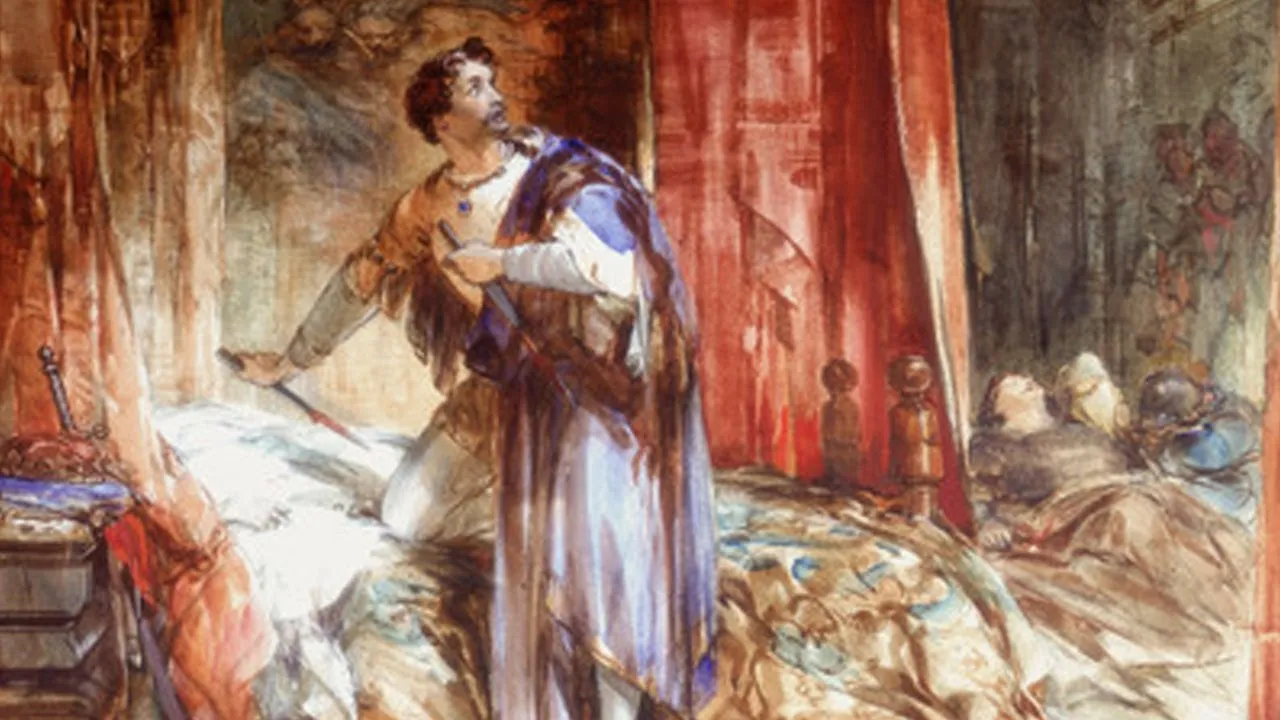
In all senses, it feels this play is a tragedy. The sense of false hopes, ego, ambition, delusion created by fate, betrayal, and the sacrifice of integrity are part of this play. I stay with Macbeth’s monologue after his wife dies. How empty life feels after someone parts, and how futile is to keep the goals you had that gained meaning through another person. I can relate to that, and I too feel empty yesterdays because of it.
En todos los sentidos, se siente que esta obra es una tragedia. El sentido de falsas esperanzas, el ego, la ambición, el engaño creado por el destino, la traición y el sacrificio de la integridad son parte de esta obra. Me quedo con el monólogo de Macbeth tras la muerte de su mujer. Qué vacía se siente la vida después de que alguien se separa, y qué fútil es mantener las metas que tenías y que ganaron significado a través de otra persona. Puedo relacionarme con eso, y yo también me siento vacío ayer por eso.
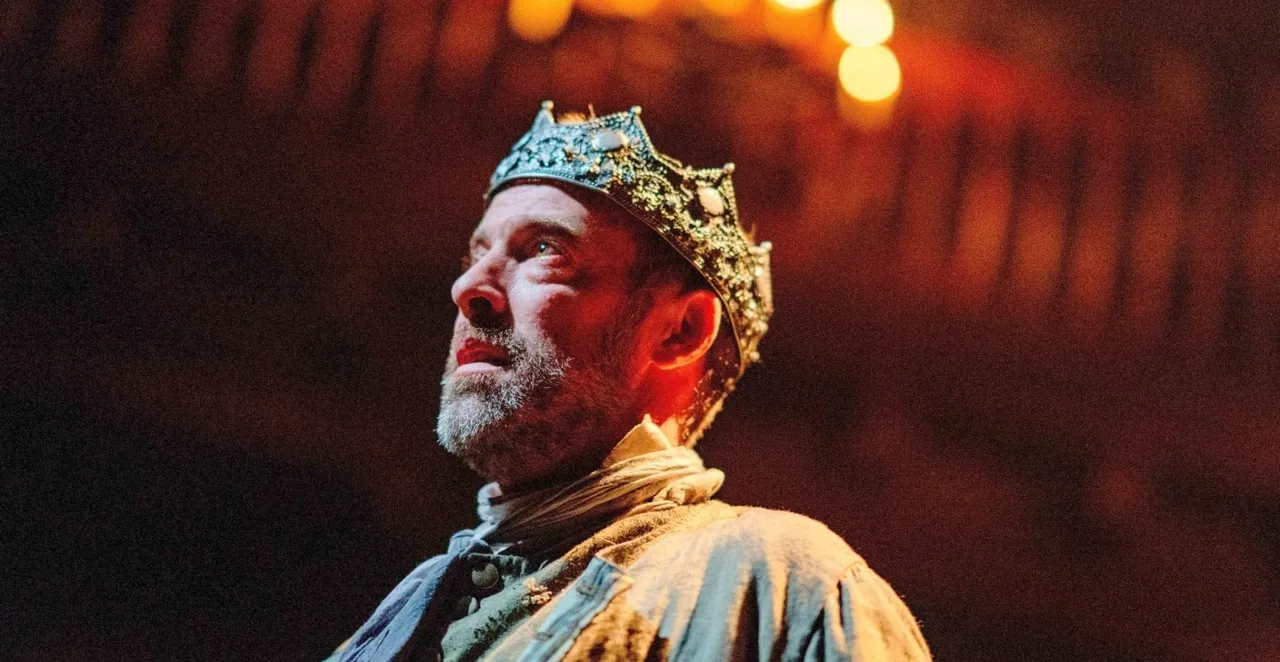
In its most simple form, peripety is a turn of events. The scene in which Lady Macbeth reveals the homicide of King Duncan is an unexpected turn of events for her and her husband. That marks the end of her presence in the story. Even though she asked the strength of the dark spirits for committing such actions and make the prophesy come true, her actions impose her such a heavy weight she could not be helped, and so she ended her life. That event, and the fulfillment of the prophecy are the two biggest turns of events this play offers.
En su forma más simple, la peripecia es un giro de los acontecimientos. La escena en la que Lady Macbeth revela el homicidio del rey Duncan es un giro inesperado de los acontecimientos para ella y su marido. Eso marca el final de su presencia en la historia. A pesar de que ella pidió la fuerza de los espíritus oscuros para cometer tales acciones y hacer realidad la profecía, sus acciones le imponen un peso tan pesado que no pudo ser evitada, por lo que terminó con su vida. Ese evento y el cumplimiento de la profecía son los dos giros de eventos más importantes que ofrece esta obra.
@gaeljosser
Analysis written for my Hum 110 class
Image sources